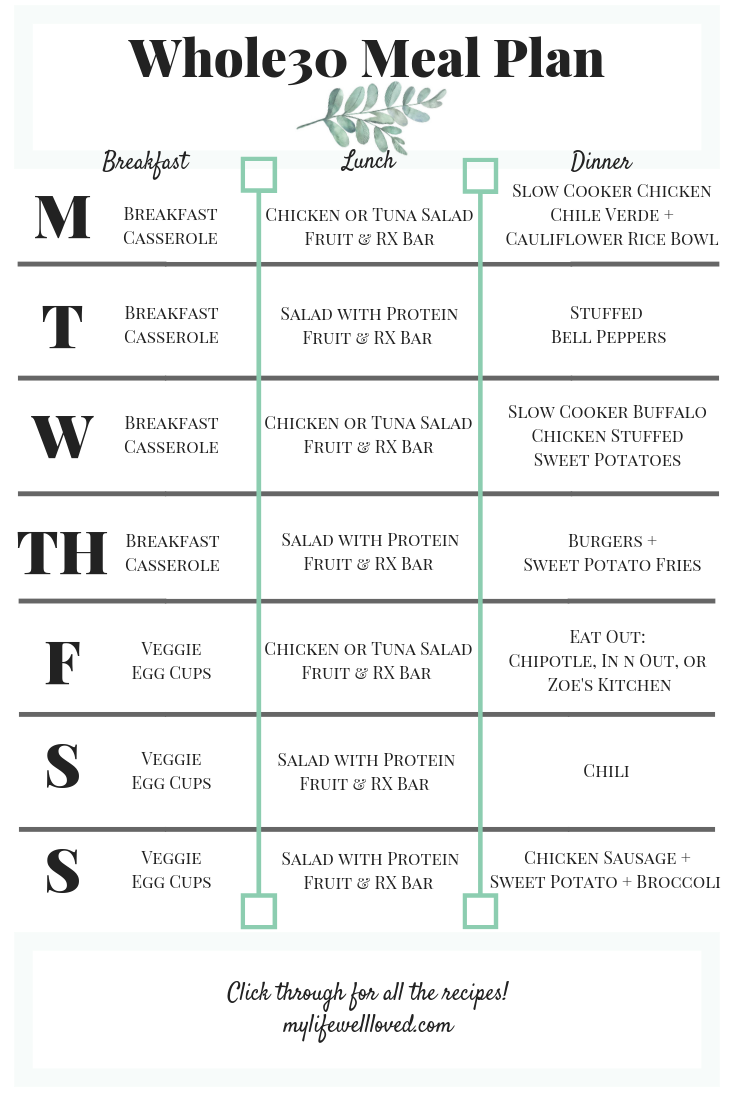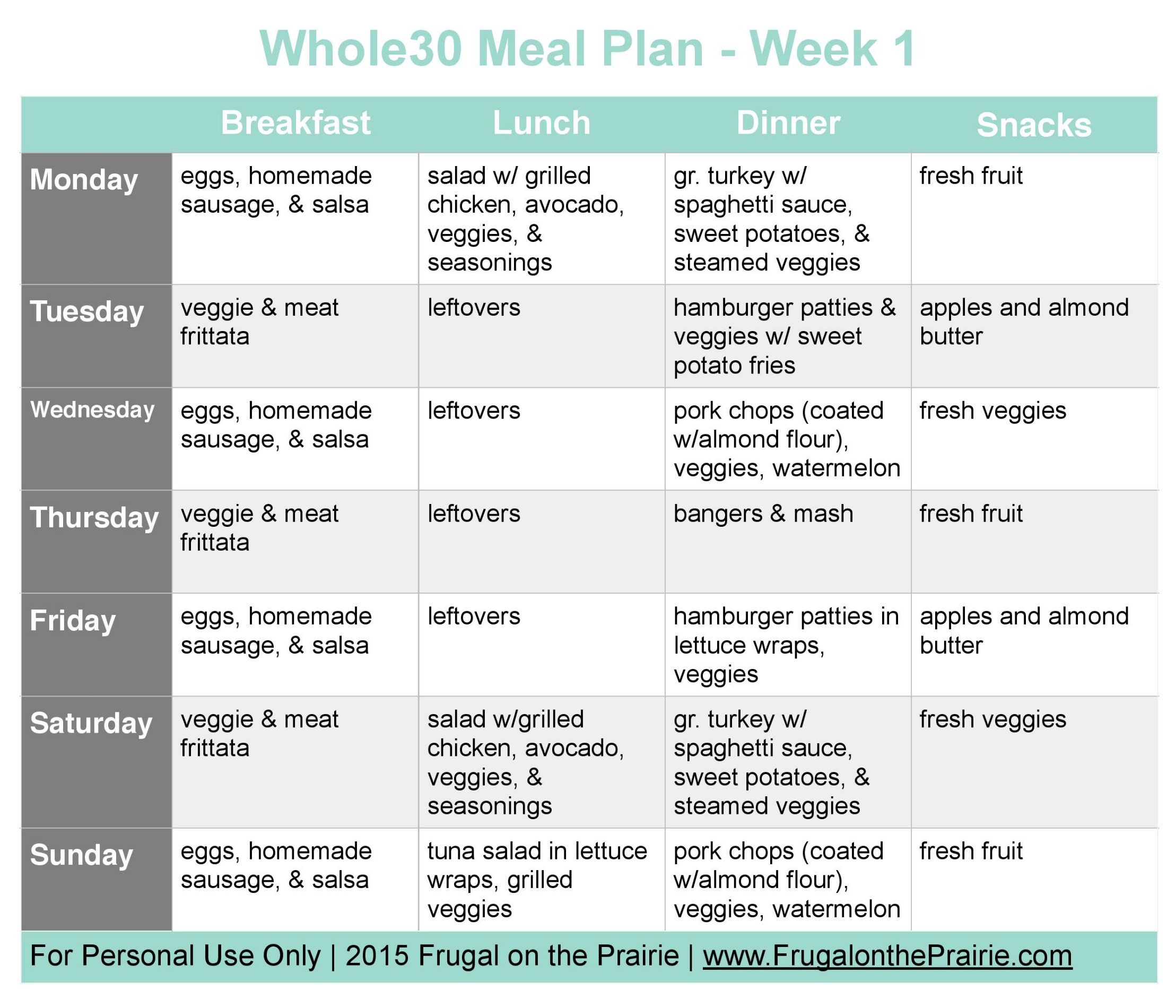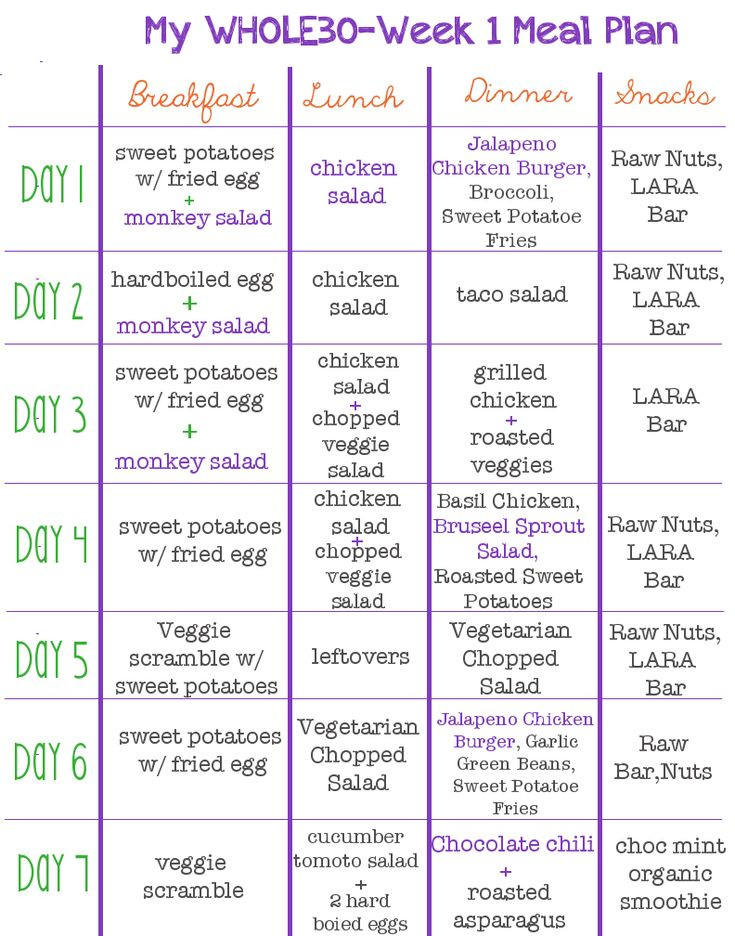1 Week Whole 30 Meal Plan
Sunday, February 26, 2023
Edit

1 Week Whole 30 Meal Plan
If you're looking for a way to improve your health and overall well-being, then the Whole 30 meal plan might be a great option for you. The Whole 30 diet is a diet that emphasizes whole foods, eliminating processed and refined ingredients and focusing on eating healthy, nutrient-rich meals. It's a great way to jumpstart your health, lose weight, and gain more energy.
What is Whole 30?
Whole 30 is a diet that eliminates processed foods, sugar, dairy, grains, legumes, and alcohol for 30 days. The goal is to reset your eating habits and improve your body’s nutrient absorption and digestion. This means that you will be eating more whole foods like fruits, vegetables, nuts, eggs, and lean meats. During the 30 days, you should not weigh yourself or take any sort of measurement of your body. This is because the Whole 30 diet is not about weight loss; it's about making healthier, sustainable changes.
1 Week Whole 30 Meal Plan
Below is a one-week Whole 30 meal plan that will help you get started. This plan is designed to give you a variety of nutrient-rich meals while also keeping it simple. You can adjust the meals to fit your preferences and dietary needs.
Day 1
Breakfast: Omelet made with 2 eggs, spinach, mushrooms, and tomatoes.
Lunch: Salad made with greens, tomatoes, cucumbers, olives, and grilled chicken.
Dinner: Baked salmon with roasted sweet potatoes and Brussels sprouts.
Day 2
Breakfast: Avocado toast with 2 eggs.
Lunch: Turkey and vegetable wrap made with lettuce, tomatoes, and avocado.
Dinner: Grilled steak with roasted vegetables and a side of quinoa.
Day 3
Breakfast: Scrambled eggs with vegetables.
Lunch: Salad made with greens, tomatoes, cucumbers, olives, and grilled chicken.
Dinner: Baked salmon with roasted sweet potatoes and asparagus.
Day 4
Breakfast: Oatmeal made with almond milk, berries, and almonds.
Lunch: Vegetable soup made with tomatoes, onions, carrots, and celery.
Dinner: Grilled chicken with steamed broccoli and brown rice.
Day 5
Breakfast: Smoothie made with almond milk, banana, berries, and flaxseed.
Lunch: Turkey and vegetable wrap made with lettuce, tomatoes, and avocado.
Dinner: Baked salmon with roasted sweet potatoes and Brussels sprouts.
Day 6
Breakfast: Scrambled eggs with vegetables.
Lunch: Salad made with greens, tomatoes, cucumbers, olives, and grilled chicken.
Dinner: Grilled steak with roasted vegetables and a side of quinoa.
Day 7
Breakfast: Avocado toast with 2 eggs.
Lunch: Vegetable soup made with tomatoes, onions, carrots, and celery.
Dinner: Baked salmon with roasted sweet potatoes and asparagus.
Nutrition
The Whole 30 diet emphasizes eating whole, unprocessed foods that are rich in nutrients. Eating a variety of healthy fats, proteins, and carbohydrates will help keep you feeling full and energized throughout the day. Additionally, the focus on whole foods will help ensure that you're getting all the nutrients your body needs.
There are some nutrients that you need to pay special attention to, such as calcium, iron, and Vitamin B12. Whole 30 eliminates dairy, which is a great source of calcium, and many grains, which are a great source of iron and B12. To make sure you're getting enough of these nutrients, you can take supplements or try to incorporate other sources such as nuts and seeds into your diet.
Conclusion
The Whole 30 diet is a great way to reset your eating habits and improve your health. The one-week meal plan outlined above will help you get started and can be adjusted to fit your preferences and dietary needs. Eating a variety of whole, unprocessed foods will provide you with essential nutrients and help keep you feeling full and energized. For best results, make sure to focus on nutrient-rich foods and take supplements if necessary.
Whole30 Week 1: The Ultimate Whole30 Meal Plan - My Life Well Loved

The Complete Whole30 Meal Planning Guide and Grocery List: Week 1

The Busy Person's Whole30 Meal Plan - Week 1 — Allison Lindstrom

15 Lovely whole 30 Weight Loss Meal Plan - Best Product Reviews

Tracey Sivak — Blog

The Complete Whole30 Meal Planning Guide and Grocery List: Week 1

Your Complete Whole30 Week 1 Plan (+5 Tips!) | Meraki Lane

January Whole30 Meal Plan Week 1 - Nourished and Vibrant

Whole 30 Meal Plan - Breakfast, Lunch, and Dinner
